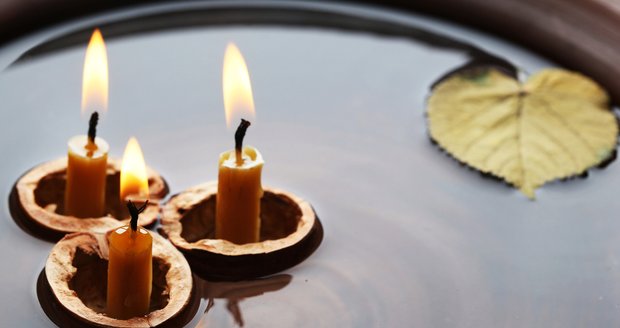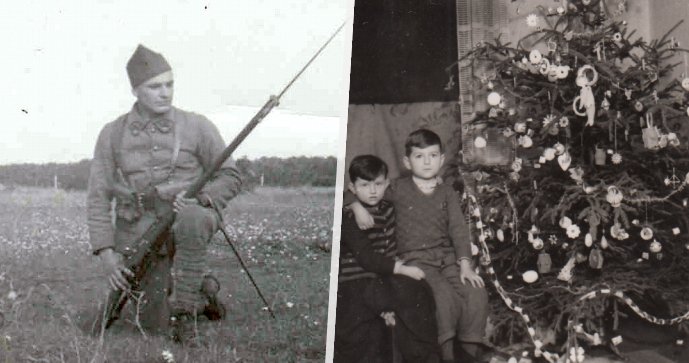Most people celebrate Christmas with traditional dishes such as salad or goldfish, lit trees, gifts or moments of relaxation with family and friends. But it wasn’t always like that. For example, during the Second World War under the Protectorate of Bohemia and Moravia, people often experienced food shortages over Christmas. The biggest shortage was the traditional goldfish, which only a handful could afford during the war.
For Nation’s Memory witness Bozena Martiníková remembers the holidays during the Protectorate, which were only four years over Christmas 1944. Her family couldn’t afford fish, so her brother sneaked out to the frozen pond at night, where German soldiers kept watch nearby. According to the rules of the time, they could have shot him on the spot, because there was a curfew after ten in the evening.
City streets plunged into darkness
However, the boy still took the risk. In the dark, he drilled a hole in the ice with the ax he carried, fished out a few goldfish, then discreetly brought them home to his family and friends. “Brother and grandfather then delivered the fish to our friend’s family. It was the most beautiful wartime Christmas,” said Mrs. Martínková.
In addition to goldfish, the country also lacked staple foods at that time. Housewives often have to experiment and try to cook dishes that resemble traditional Cuban salads or carp. Apart from shortages of food and other goods, people are often unable to enjoy the Christmas atmosphere even in city streets due to mandatory power cuts. Cities plunged into darkness after dark.

Christmas magic ahead
However, the holidays were made even more difficult for the soldiers, who had to spend Christmas Day at the front. Despite all the circumstances, some soldiers remember the “Christmas miracle”. “Imagine on Christmas Day not a single rocket fell, it was completely silent, even though the Germans were only eight hundred meters away.” narrated by Ján Bačík for Pámeť Národa. At Christmas 1944, he fought during the siege of the French port of Dunkirk as deputy commander of a tank platoon commander of the Czechoslovak Independent Armored Brigade.
According to Mr. Bačík, that year’s holiday was a truly extraordinary experience. “Suddenly at midnight a bunch of Germans came out and were singing German songs. Our boys were ready for anything, they also went to the front and sang Czech songs. For a while it seemed like we weren’t even in the line front.” added the former soldier.

Send biscuits in tea as a holiday dinner
All the memories of the soldiers are also connected with the lack of food. “Our chef is a trained carpenter, not a real cook. For dinner later she made ship crackers, which she steeped in tea and mixed with marmalade. No other,” explained Josef Polívka, who risked his own life during the Tobruk harbor siege.
The greatest suffering for all soldiers is perhaps separation from their families. “We also make a little table where we put pictures of our loved ones, if anyone has them. We sang ‘Bohemia the Beautiful’ and then the Czechoslovak national anthem. We spent the rest of the evening talking about home.” Jan Šefl talks about his memories of forced labor at the German submarine base in Trondheim, Norway.


“Certified bacon geek. Evil social media fanatic. Music practitioner. Communicator.”






